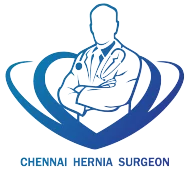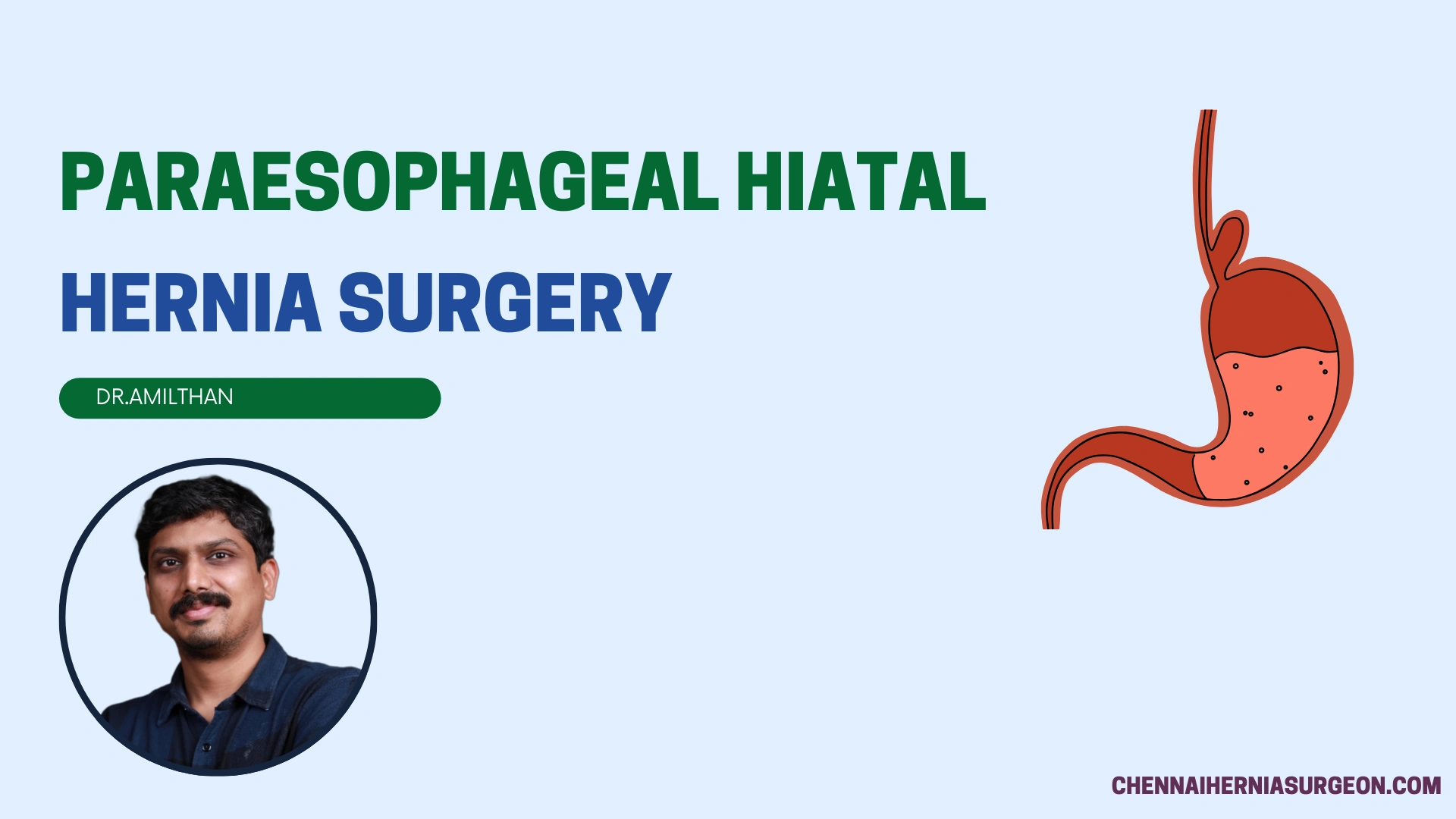When your stomach pushes through your hiatus to the chest cavity it is called paraesophageal hiatal hernia. The hiatus is an opening in the diaphragm through which the esophagus passes through the thoracic region to the abdomen.
At times paresophageal hernia do not cause any pain or discomfort. Such hernias do not require surgery most of the time.
When paraesophageal hiatal hernia causes severe discomfort you have to opt for surgery. Strangulated or incarcerated hernia also demands immediate surgery.
What is Paraesophageal Hiatal Hernia Surgery?
Paraesophageal hiatal hernia or “rolling hiatal hernia” is a type 2 hernia.
Paraesophageal means “beside the esophagus”. Paraesophaegeal hiatal hernia occurs when the lower part of the esophagus, the contents of the stomach, or other organs pass through the esophageal hiatus to the chest cavity.
Paraesophaegal hiatal hernia does not cause any recognizable symptoms most of the time. Yet some may sense serious heartburn due to acid reflux from the stomach.
When the severity of the hernia symptoms increases and when it disturbs your normal bodily functions your surgeon may advise you to go for surgery.
Paraesophageal hiatal hernia surgery is done laparoscopically through the abdomen most of the time. The hernia is repaired as per requirement and the stomach opening is tightened to keep the hernia from rolling back into the chest cavity.
When Does a Hiatal Hernia Need Surgery?
Strangulated and incarcerated paraesophageal hiatal hernia requires immediate surgery.
You would also require a paraesophageal hiatal hernia surgery if you sense:
- Severe Chest Pain: Severe chest pain can arise from abdominal organs moving into the chest cavity and pressing against chest organs.
- Difficulty in Swallowing: Swallowing can become hard because of the decreasing capacity of the stomach. You can also feel loss of appetite and lose weight.
- Shortness of Breath: Your lungs can feel oppressed because of the abdominal contents moving into the chest cavity. This can create shortness of breath and make breathing difficult.
- Stomach Ulcer: Your stomach can get twisted because of the rolling and displacement. Serious ulcers that bleed can arise in the digestive tract called Cameron’s erosion which will require immediate treatment.
How to Prepare for Paraesophageal Hiatal Hernia Surgery?
Preparing for paraesophageal hiatal hernia surgery is essential to face the surgery. Keeping both your body and mind ready for the surgery can help you with a successful and quicker recovery.
Some tips that can help you prepare for paraesophageal hiatal hernia surgery:
- Walk a few distances each day to keep your body active. Do not stay a couch potato or be involved in strenuous exercises. Moderate exercise can keep your body healthy enough for the surgery.
- Breathing exercises can help you with any breathing difficulty you face with the paraesophageal hiatal hernia.
- Quit smoking at least 4 weeks before surgery. Nicotine-based products can cause infection and reduce the rate of recovery.
- Stop taking blood-thinning medications such as Plavix, aspirin, etc. These medications can prevent blood clots and disrupt the surgery.
Avoid non-steroidal anti-inflammatory medications as they can prevent blood from clotting. - Adopt a pre-op diet for hiatal hernia surgery that is friendly to your stomach.
Things to Do Before Paraesophageal Hiatal Hernia Surgery
Your surgeon will go through your medical history and prescribe certain physical examinations such as:
- Upper GI Endoscopy
- Motility Testing (Esophageal Manometry)
- pH Monitoring
- Barium Swallow
- Blood Tests
These tests that are done before hiatal hernia surgery ensure that your body is ready for the surgery.
Also, consult with your healthcare provider before the surgery regarding any medications or herbal supplements you are taking.
Paraesophageal Hiatal Hernia Surgery Recovery
Generally, 10 to 12 weeks are required for recovering from paraesophageal hiatal hernia.
Surround yourself with enough emotional and physical support to help you through the recovery. Avoid driving on your own until your pain from the surgery decreases and when you stop taking painkillers.
Avoid a diet that can stress your operated area and that increases heartburn and pain.
Following the right diet after hiatal hernia surgery can increase your speed of recovery and keep you healthy through the recovery period.
Are There Side Effects of Paraesophageal Hiatal Hernia Surgery?
You can encounter minimal appetite after the surgery. It is not a cause for concern as your appetite will recover eventually.
You can also face difficulty in swallowing because the surgery primarily focuses on the digestive tract.
In rare cases, abdominal bloating can occur after the surgery. And all these effects would subside over time.
Conclusion
Paraesophageal hiatal hernia may not be common. Still, it requires careful attention as any hernia.
There are upgraded surgical technologies available to treat paraesophageal hiatal hernia. So approach a hernia surgeon as soon as you find the hernia too severe.
Wishing you a successful recovery from paraesophageal hiatal hernia!
To know more about the paraesophageal hiatal hernia surgery contact a hernia surgeon.





